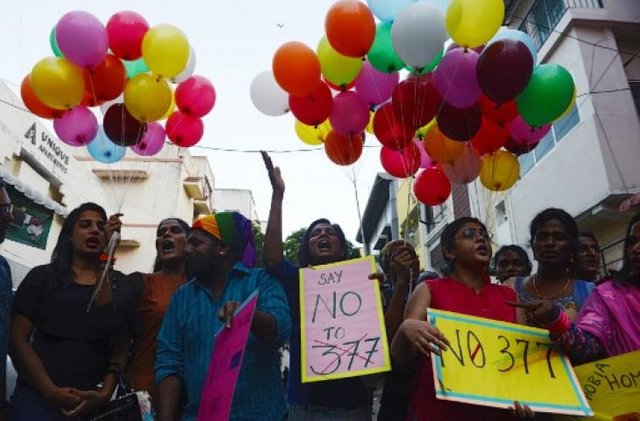Supreme Court decriminalises Section 377; says 'Consensual adult gay sex not a crime'
The Centre, which had initially sought adjournment for filing its response to the petitions, had later left to the wisdom of the court the issue of legality of the penal provision on the aspects of criminalising consensual unnatural sex between two consenting adults.

NEW DELHI : The Supreme Court on Thursday pronounced its much-awaited verdict and decriminalised section 377. In its historic judgment, the apex court said that adult gay sex is not a crime. The order came after a number of petitions seeking decriminalisation of the 158-year-old law which earlier held consensual gay sex unlawful.
The Supreme Court however said that other aspects of Section 377 dealing with unnatural sex with animals and children remain in force.
The matter was heard by a five-judge constitution bench headed by Chief Justice Dipak Misra; who had earlier reserved its verdict on July 17 after hearing various stakeholders for four days, including gay rights activists.
While hearing the case, Chief Justice Dipak Misra observed that "No one can escape from their individualism. Society is now better for individualism. In the present case, our deliberations will be on various spectrums".
The CJI further said that "LGBT Community has same rights as of any ordinary citizen. Respect for each others rights, and others are supreme humanity. Criminalising gay sex is irrational and indefensible".
Here’s all you need to know about SC verdict:
Section 377 refers to 'unnatural offences' and says whoever voluntarily has carnal intercourse against the order of nature with any man, woman or animal, shall be punished with imprisonment for life, or with imprisonment of either description for a term which may extend to 10 years, and shall also be liable to pay a fine.
The Centre, which had initially sought adjournment for filing its response to the petitions, had later left to the wisdom of the court the issue of legality of the penal provision on the aspects of criminalising consensual unnatural sex between two consenting adults.
The issue was first raised by NGO Naaz Foundation, which had in 2001 approached the Delhi High Court which had in 2009 decriminalised sex between consenting adults of the same gender by holding the penal provision as "illegal".This high court judgement was overturned in 2013 by the apex court which also dismissed the review plea against which the curative petitions were filed which are pending.